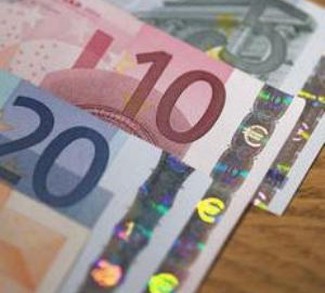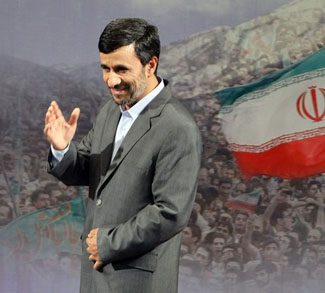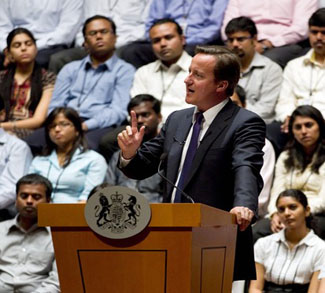Over the past few months, Vietnam has experienced unprecedented shifts in its political landscape, including high-level personnel changes and the resignation of senior officials due to allegations of corruption. Despite concerns from international observers, these developments have not disrupted the nation’s collective commitment towards greater accountability, economic progress, and political stability inscribed in policies set by the 13th national congress of Vietnam’s Communist Party three years ago.
Just a month ago, President To Lam was confirmed as the head of the Communist Party of Vietnam (CPV) following the death of his predecessor, Nguyen PhuTrong. Lam, in support of Trong’s policies, played a crucial role in the sweeping anti-graft corruption campaign that resulted in the imprisonment of dozens of high-ranking party officials and the resignation of many others, including two consecutive presidents.
Lam, the former Minister of Public Security, has swiftly shown his dedication to preserving Trong’s legacy while implementing his own domestic and foreign policy strategies. In his initial statements after taking office, he highlighted a focus on economic growth and people-centered initiatives, the continuation of the anti-corruption campaign, and a pragmatic approach to foreign relations. The Party chief and other political leaders are well aware of how rapidly the country has progressed as a model of state capitalism.
Vietnam is a vibrant economic force in Southeast Asia. In 1975, following the end of the Vietnam War, the nation was one of the poorest globally, with a per capita GDP of just $200. However, the introduction of DoiMoi or “Renovation” in 1986—comprising a series of sweeping economic and political reforms—transformed the country into a socialist-oriented market economy. Today, its GDP per capita has surged to almost $4,300, reflecting its remarkable economic progress.
As a result, Vietnam’s present economic growth hovers between of 6-7%. The nation’s economy has experienced significant growth over the past few decades, driven by an influx of foreign direct investment. As geopolitical tensions between Beijing and Washington intensified, Vietnam emerged as a preferred alternative to China. This shift, coupled with a capitalist-oriented model, has propelled Vietnam into the ranks of the world’s 35 largest economies.
Amid escalating U.S.-China competition and tensions across the Taiwan Strait, more U.S. businesses are shifting their manufacturing operations from China to other countries, with Vietnam emerging as a key beneficiary. Major U.S. firms such as Apple, Intel, Nike and others have continued to make investments in the country, even during the government’s anti-corruption campaign.
According to the Washington D.C. based Center for Strategic and International Studies (CSIS), the elevation of the US–Vietnam relationship to a Comprehensive Strategic Partnership in September 2023 has further spurred U.S. interest in investing in Vietnam. Notably, 15 U.S. companies, including major semiconductor firms, have signaled plans to invest $8 billion in Vietnam’s clean energy infrastructure.
While the new leadership argues for Vietnam’s recognition as a middle power, it is still bound by international institutions like the World Bank, International Monetary Fund, the United Nations, and World Health Organization to name but a few.
Although the U.S. Commerce Department has not officially recognized Vietnam as a market economy, many US and international organizations, businesses, and experts agree that Vietnam fully meets the six market economy criteria outlined in US law. So far, 72 other economies, including the UK, Canada, Mexico, Australia, India, South Korea, and New Zealand, have acknowledged Vietnam’s status as a market economy.
The current Party leaders, Mr. To Lam and Mr. Pham Minh Chinh, are recognized as experienced figures in foreign affairs and also regarded as technocrats. Also, Secretary General and President Lam, as the former Minister of Public Security, has played a significant role in anti-corruption efforts, institutional reform, national digital transformation and in strengthening Vietnam-US relations. After taking office, Mr. To Lam has emphasized Vietnam’s commitment to deepening relationships with neighboring countries, major powers and key partners.
Meanwhile, Prime Minister Pham Minh Chinh, has revealed himself to be an innovative leader, who supports international integration and green economic development. As Secretary of Quang Ninh Province, he successfully transformed the region from a coal mining hub into a model for sustainable “green” development focused on tourism.
For over a decade, Vietnam’s “blazing furnace” anti-corruption campaign has aggressively pursued more than 16,000 corruption-related investigations, targeting over 30,000 defendants, including prominent business leaders and senior government officials. Notably, more than 7,300 CPV members have faced disciplinary actions, including Politburo members, 29 Central Committee members, and 50 general officers in the People’s Army of Vietnam, as reported by the Singapore based law firm, Stoneturn.
However, this campaign has not led to any changes in the markets. During the six months that saw the resignations of top leaders, Vietnam’s stock markets increased by over 10 percent.
Although these purges have led to concerns about understaffing in some government ministries, the Communist Party is accelerating its efforts to strengthen its personnel at both central and local levels. The latest appointments of three new Deputy Prime Ministers and Head of the CPV Central Economic Commission reflects the Party leaders’ preference for technocrats.
With a burgeoning middle-class in a country of 100 million, Vietnam is grappling with rising social and economic inequality, environmental challenges, and increasing demands for greater transparency. These issues present considerable obstacles for the ruling Party leadership.
Despite delays in issuing business licenses, the economy remains strong and continues to attract foreign investment. Analysts note that the anti-corruption campaign and recent changes in political leadership have yielded benefits, such as reducing illegal fees and other costs for domestic businesses.
According to a report from the Asian Development Bank, Vietnam’s economy grew by 6.42% in the first half of 2024 compared to the same period last year. Also, the country’s total import and export turnover is estimated at nearly $368.53 billion, while international tourist numbers have surged by 58.4%.
Despite the changes in government personnel ahead of the 2026 elections, Vietnam aims to elevate its securities market to the “emerging” status by 2025. The Financial Times Stock Exchange Group anticipates that the country could achieve a secondary emerging market status by this fall or March of 2025. Even Dragon Capital’s August Market Bulletin underscores optimism about Vietnam’s economy revealing, noting that “the worst of currency volatility and domestic uncertainties may now be behind us.”
Vietnam’s recent leadership changes, though noteworthy, have reinforced stability and confidence by underscoring the government’s dedication to its anti-corruption campaign and ongoing economic growth strategy, which is bolstered by substantial foreign investment. This reflects the government’s commitment to maintaining strong governance and sustaining the nation’s economic momentum.
James Borton is a non-resident senior fellow at Johns Hopkins SAIS Foreign Policy Institute and the author of Dispatches from the South China Sea: Navigating to Common Ground.
The views expressed in this article belong to the author(s) alone and do not necessarily reflect those of Geopoliticalmonitor.com.




